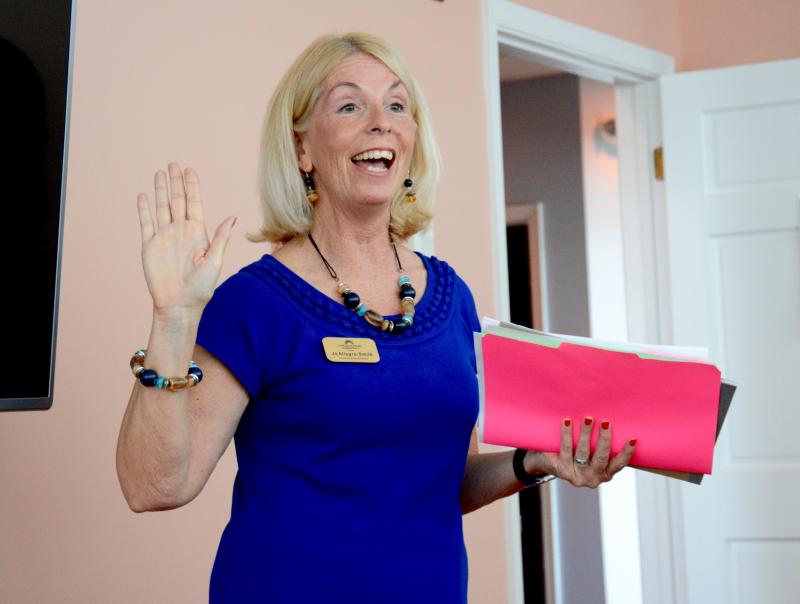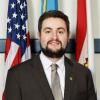Cancer Support Community Delaware hosts moonshot summit
When Vice President Joe Biden spoke at the Cancer Moonshot Summit in Washington, D.C. June 29, Cancer Support Community Delaware acted as a summit host. Researchers, oncologists, doctors, nurses, philanthropists, advocates, survivors and others convened at the organization’s Sussex County office to stream the vice president’s remarks.
Representative of the cancer community, the gathering discussed efforts to accelerate progress in cancer treatment and prevention while sharing their personal stories. “The overarching purpose of the summit is to bring everybody together in a conversation about what we need to do to make meaningful progress forward,” said Jo Allegro-Smith, Sussex County director of the Cancer Support Community Delaware. “That relates to diagnostics, prevention, treatment, patient care and ultimately to a cure for cancer.”
The Cancer Support Community is a leading partner of the Cancer Moonshot Initiative. The international nonprofit organization ensures all people affected by cancer are empowered by knowledge, strengthened by action and sustained by community.
More than 6,000 people across the country participated in over 270 simultaneous conversations during the summit, under the national charge to double the rate of progress toward finding a cure.
In his final state of the union address, President Barack Obama tasked the vice president with leading a new national effort to end cancer as we know it. Since then, agencies have convened under Biden’s leadership to accelerate efforts to find a cure. Recently, the Delaware Senate unanimously passed Concurrent Resolution 89 sponsored by Sen. Harris McDowell, which pledges support for the Moonshot Summit.
Biden hosted the daylong summit at Howard University as part of his Moonshot initiative. The summit gets its title from President Kennedy’s 1961 moonshot speech, which helped persuade the American people to support the national effort to land a man on the moon by the end of the decade.
Much like Kennedy, in his own speech, Biden sought to persuade Americans to use the resources they have and form a national initiative to work toward a cure for cancer.
Biden said the world of cancer research needs a change in culture and increased cooperation among researchers. He called out drug companies for unnecessary price increases and pressed the need to remove bureaucratic hurdles. He also threatened to pull federal funding for cancer studies that fail to publicly disclose their results. Overall his mission was to put pressure on researchers, clinicians and drug companies to speed up progress toward cancer cures.
Biden’s role in leading the Cancer Moonshot Summit is poignant and personal; he lost his oldest son to brain cancer last year. “The goal of the moonshot is to propel us forward today,"” Biden said. “Part of the moonshot … from my view, is honoring Beau and the life he lived.”
Following the vice president’s speech, Cancer Support Community Delaware held an open discussion to allow attendees to share their input as experts in the cancer experience. Their discussion points will be noted and included in a White House report for Biden.
Many participants said education is critical to preventing cancers. “I think education is just as important as doing research,” said Dr. Andrejs Strauss, who specializes in radiation oncology. “I would rather make sure we spend good money on educating people, which is going to cost us a lot less down the road, and then take the remaining money to do research on cancer.”
“Education is critical. It’s there, but the education needs to be interwoven into the fabric of the standards of care,” said Dr. Judith Ramirez, manager of Oncology Population Health at Beebe Healthcare’s Tunnell Cancer Center.
The group also discussed the importance of access to proper resources, counseling and support systems, nutritional planning and copay assistance programs. “I think infusing the availability of assistance programs throughout the course of treatment is something that we could be better at doing and probably be more proactive with,” said Ramirez.
The discussion ended with recommendations for improving cancer care. Increasing collaboration between doctors and communities while promoting healthy living is necessary in order to move forward. “Our culture promotes competition and not collaboration,” said Ramirez. “I think in cancer care, we promote ‘get well,’ but we forget how wide we can cast that net to get well.”
The summit was certainly successful in spurring community conversations, organizers said. “This event is very important to everyone who shares the cancer experience, which is pretty much all of us,” said Allegro-Smith. “It creates this sense of hope and excitement that maybe we really can find a cure for cancer.”
























































